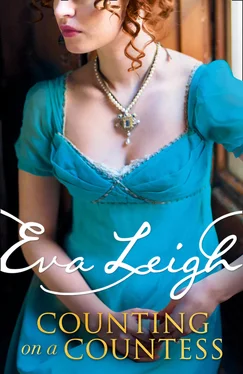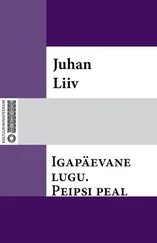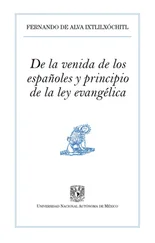“Perhaps not,” the solicitor allowed, “but Lord Somerby named you as one of his beneficiaries.”
“He what ?” Kit demanded.
Flowers pulled a pair of spectacles from his coat’s inside pocket and set them on his nose. His eyes moved back and forth as he perused the will. “While it is true that the majority of his considerable fortune has gone to relatives, the marquess earmarked a portion for you upon his death. You are to receive an initial sum of ten thousand pounds and an annual allowance of one thousand pounds for fifty years.”
Kit’s heart seized before taking up a fast rhythm. “Surely not.”
The solicitor drew himself up. “I, myself, transcribed Lord Somerby’s words as he lay on his deathbed. There is no mistake, my lord. The money is yours, and should you decease before the fifty years has elapsed, then your issue shall be the recipient or recipients.”
“I . . .” Words had always been Kit’s ally. They were reliable and came to him easily. Yet now, they were nowhere to be found.
His pulse hammered as though he had just liberated a town from enemy forces. Was it true . . . ? Could he believe it?
His allowance as a third son was, at best, modest, and seldom lasted long. The selling of his commission had provided a small increase—but it was short-lived. Like many men of his class, he lived on credit. His rooms, his clothes, his wine. God only knew what he owed at the gaming hells. But he returned to them again and again, staking too much money on steep odds, praying for the win that would secure his dream. A dream he’d held close throughout the War and that kept him sane when the world had turned to mud and madness.
He’d never truly believed he could make it happen. Until now.
“The news is welcome, I wager,” Flowers said, glancing up over the rims of his spectacles.
“Quite welcome,” Kit answered softly. “I have . . . plans.”
He hoped those plans would chase away the darkness that haunted him ever since his return from Waterloo. Shadows lurked in silent corners and whispered to him in the quiet moments, joyless thoughts that brought him back to the hell of war and the omnipresence of death. He ran from pleasure to pleasure, trying to outpace the wraiths. If he could accomplish his one goal, he might not have to face those ghosts again.
As the War had ground on, his life consisting of boredom and battles, blood and loss, Kit had turned again and again to thoughts of a world where nothing existed but pleasure. Where every day was filled with happiness and beauty.
He’d always loved going to Vauxhall, with its pavilions, gardens, lights, and music—an unending parade of joy. What if he could create a place like that, a pleasure garden entirely of his own design? He’d oversee it, immersing himself not in the business of death but life.
It would be his. Finally.
“Show me what to sign.” He stood and paced around the chamber. “There’s got to be a pen around here. I’ll ring for one.”
“Hold a moment, my lord.” Flowers got to his feet.
The grave expression on the solicitor’s face froze Kit in place. His instincts had kept him alive on the battlefield for more years than he cared to remember. Those same instincts rang like a bell, resonating through him.
“There is a condition,” Flowers explained. “It’s rather unusual, but Lord Somerby was most insistent.”
“Tell me.”
The solicitor cleared his throat once more. “Lord Somerby was, as you are aware, a widower, and spoke most effusively about the holy state of matrimony.” He paused. “Might I suggest you have a drink of wine, my lord?”
Kit strode instead to a decanter of brandy perched on a small table. He poured a generous amount into a glass and drank it all down in one swallow. He felt the warm burn in his throat and the softening of reality’s sharp edges.
“What must I do to claim my bequest?” he demanded.
“As of today,” Flowers announced, “you have thirty days.”
Kit narrowed his eyes. “Thirty days to do what?”
“Wed,” the solicitor answered. “Then, and only then, will you receive your portion of Lord Somerby’s fortune. If you do not, then the money goes to the late marquess’s distant relative in Bermuda.” Flowers tried to smile, but it resembled a grimace.
Blood rushed from Kit’s head like deserters fleeing combat. The room tilted, but it had nothing to do with the brandy he’d consumed. “Good God damn.” He clutched the neck of the decanter as though it could support the weight of his shock.
The chamber righted itself, but Kit’s world had been completely upended. “It appears that I’m getting married.”
Staring into the narrow, dark alley, Tamsyn Pearce calculated her odds of surviving the next ten minutes and determined they weren’t good.
“Did you bring a firearm?” Nessa asked as she peered over Tamsyn’s shoulder.
“I have a knife in my garter,” Tamsyn answered.
Nessa clicked her tongue. “A blade won’t do much against a pistol.”
Straightening her spine, Tamsyn said in what she hoped was a confident tone, “I’ve learned a few things after eight years of smuggling—including how to avoid the dangerous end of a pistol.” She aimed a smile at her friend. “Haven’t been shot yet.”
“There’s a first time for everything,” Nessa replied grimly.
Tamsyn shook her head. “A fine way to show your encouragement.”
Nessa attempted to look more cheerful, but the worry never left her eyes. She gently smoothed a hand down Tamsyn’s cheek. “Ah, my bird, forgive my worry. You’ve done so much for Newcombe, ever since you were but a child, and your poor mabmik and tas at God’s table.”
An old, familiar ache resounded in Tamsyn’s chest, even though it had been ten years. Her parents, Adam and Jane Pearce, had taken their pleasure boat out to sail along the rocky Cornish coast of their home, leaving fourteen-year-old Tamsyn behind to finish her schoolwork. They had not returned alive.
The barony had passed to Tamsyn’s uncle, Jory. But if the villagers of Newcombe had hoped to find in the new baron the same measure of concern for their welfare as his brother had demonstrated, they were bitterly disappointed. A poor fishing yield and strangling taxes decimated Newcombe’s livelihood. To Tamsyn, orphaned and adrift, there had been one audacious solution to the village’s plight.
But all that could come to an end if she couldn’t move this sodding shipment of brandy and lace. She’d journeyed all the way to London to help the village and if she failed, she imperiled over four hundred souls depending on her.
She glanced back into the alleyway. It smelled of copper and standing water, and shadows gathered thickly. Somewhere in that gloom, a tanner named Fuller kept a storefront, but that business was merely a pretense for a much more profitable enterprise.
“Can we be sure of this bloke?” Nessa pressed, giving words to Tamsyn’s own worries.
“He’s the best lead we’ve had in a fortnight.” Everyone else had fallen through. “Come on.” She stepped into the alley.
More than once, Tamsyn had evaded customs officers, running down the beach and hiding in caverns to lose her pursuers. She had learned how to fire a pistol and where to stick a man with her blade so that she dealt a punishing but not fatal wound. Every time a new shipment needed to be offloaded, she faced danger.
The fear that made her palms sweat had little to do with physical peril. So many relied on her. She couldn’t fail them.
Nessa’s nervous steps tapped behind her as she strode deeper into the alley, echoing her own rapid heartbeats. But Tamsyn vowed that she would brazen this out just as she’d done with everything else in her life.
Читать дальше












